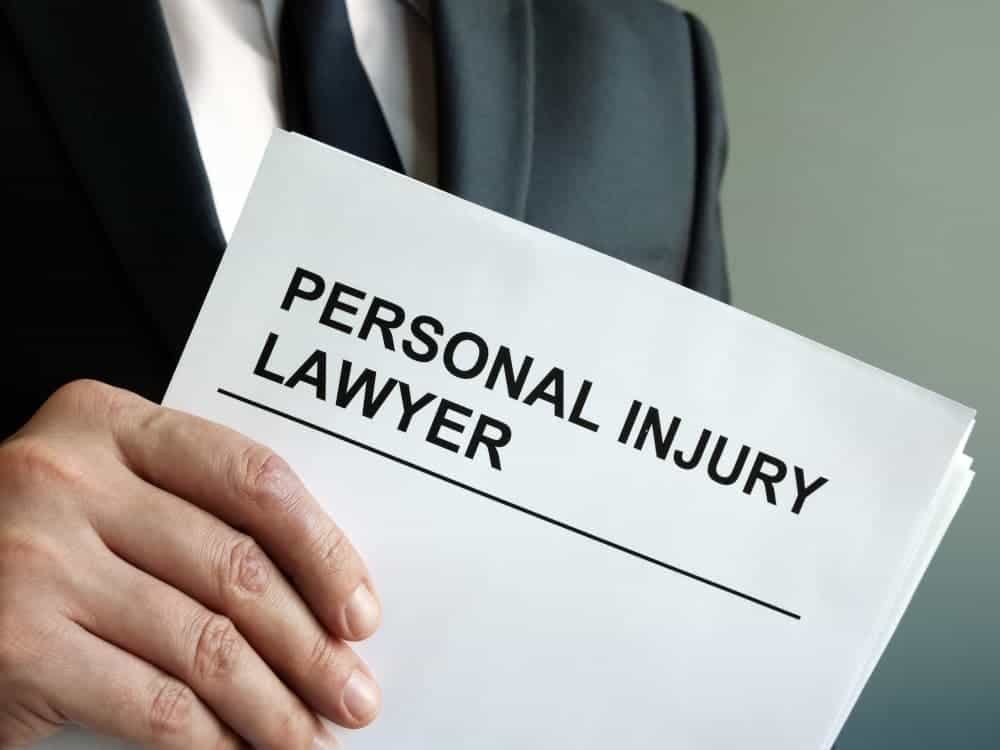
Nobody wants to find themselves in a personal injury accident that turned your world upside down. Now you’re grappling with physical pain, emotional distress, and mounting medical bills.
In such circumstances, hiring a personal injury attorney is often your best bet to protect your rights, as they can negotiate on your behalf and fight for the compensation you need.
But how can you ensure you’re entrusting your case to the right hands?
Ask your potential attorney the right questions during your first meeting.
During an initial personal injury attorney meeting, you can ask questions to gauge your attorney’s experience, understanding of your case, and knowledge of the legal process.
You can also determine their fee structure, communication skills, and case management style. Asking certain questions can give you a clear picture of what to expect as your case progresses, increasing your chances of a successful personal injury claim.
As you prepare to meet with a lawyer to review your potential claim, consider what questions you’ll ask so you can hire the right lawyer to protect your rights and pursue the compensation you deserve.
How Personal Injury Law Compensates You for Your Damages
Personal injury law, also known as tort law, is a legal field that provides accident victims with a legal remedy for harm resulting from the wrongful conduct of others. It hinges on the legal principle that if another party’s negligence or intentional act harms you, you can pursue compensation for your injuries and damages.
Hiring a personal injury attorney is important if you suffer injuries due to someone else’s negligence. Potential claims could include car accidents, slip and falls, medical malpractice, and wrongful death. Handling a claim alone is usually not your best option and could result in you receiving much less money than you may need or the denial of your claim entirely by the insurance company.
Your personal injury attorney can navigate the legal process, negotiate with the responsible party’s insurance company, and, if necessary, represent you in court to pursue fair compensation for your injuries.
Asking the Right Questions When Hiring a Personal Injury Attorney

Engaging the right lawyer to handle your case is crucial to ensuring a positive outcome. Asking the right questions when meeting with a lawyer is important because it allows you to gauge the attorney’s skills, experience, and methodology, which can help you make an informed decision on who should represent you in your pursuit of justice and compensation.
Meeting with a lawyer for the first time can feel overwhelming and nerve-wracking. It’s important to remember that the lawyer is working for you.
A lawyer’s role in a personal injury case is to fight on your behalf and protect your rights and interests at every stage, whether during the claims process or at trial. Your questions can help determine whether the lawyer is the right fit for your case and if they can accept you as a client.
Questions About the Attorney’s Experience and Background
The experience and background of a lawyer can significantly influence their approach to a case. Some personal injury lawyers spend most of their time fighting traffic accidents or slip and falls, while others represent clients across the board in personal injury matters. Ask questions about the attorney’s experience and background to learn what cases they have handled in the past.
A more seasoned attorney may have a deeper understanding of the nuances of such personal injury cases and the best strategies for ensuring a favorable outcome.
Lawyers who work primarily with personal injury clients have dealt with insurance companies, know the relevant laws inside and out, and are familiar with courtroom procedures. Let’s look at some important questions to ask.
How Long Have You Practiced Personal Injury Law?
The more experience a lawyer has, the likelier they are to understand the law and how it applies to your situation. Ask how much experience your attorney has in handling these types of legal matters.
Have You Handled Cases Similar to Mine? If so, What Were the Outcomes?
An attorney should be transparent about their experience and background. No two cases are exactly alike, and each claim has different facts and circumstances that can influence the outcome.
A successful personal injury lawyer should have no issue sharing their successes and be happy to discuss settlements or verdicts they have won for their clients.
Do You Prefer Working On Certain Types of Personal Injury Cases?
A lawyer might prefer certain personal injury matters over others due to personal preferences or because they have a track record of success in a particular area of personal injury law. Asking this question can help determine if the attorney is comfortable handling your type of injury case.
How Often Do You Take Cases to Trial?
Many personal injury cases resolve through settlement, but a lawyer’s experience in taking cases to trial can provide valuable insights. Although it’s usually most beneficial to settle, a lawyer may want to take your fight to court when facing unfair settlement offers or disputes from the parties at fault in your case.
Questions About the Attorney’s Assessment of Your Case
An attorney’s assessment of your case can set realistic expectations. The lawyer’s perspective can provide valuable insights into possible outcomes, the potential timeline, and the challenges you can expect.
What Damages Can I Claim?
A lawyer may not be able to tell you the exact amount you can expect, but they should be willing to explain the different damages you can pursue, which include medical expenses, loss of income, property damage, and noneconomic damages, such as pain and suffering and emotional distress.
What Challenges Do You Foresee in My Case?
Every case presents its challenges. There may be difficulties proving liability due to lack of evidence or complications arising from pre-existing conditions, for example.
Some cases may also face statutory obstacles or issues with insurance coverage. An experienced attorney can identify these potential roadblocks and discuss strategies to overcome them.
How Long Do You Expect It To Take to Resolve the Case?
A personal injury lawyer cannot give you an exact timeframe for achieving a resolution in your case, though they should provide a rough estimate based on similar cases they have handled in the past.
Factors influencing the timeline include the complexity of your case, other parties’ willingness to settle, and the court’s current caseload.
Questions About the Legal Process
Understanding the legal process can help you navigate the system and prepare for what’s next. Although your lawyer may aim to resolve your case via negotiations with the insurance company, other legal steps may become necessary.
What Is the Process for Filing a Personal Injury Claim?
After filing a personal injury claim, every case undergoes different proceedings. Some cases require a more thorough evidence-gathering phase, while others involve more negotiation with insurance companies.
Understanding the course of action your lawyer plans to take can give you a clearer picture of the process.
How Do the Negotiations With Insurance Companies Usually Go?
Negotiating with insurance companies is a complex process that requires an understanding of the finer details of insurance law and strong negotiation skills. Your attorney may establish the extent of your injuries and the other party’s liability before commencing negotiations.
Insurance companies may initially propose a lower settlement amount in an attempt to minimize their payout. Your attorney can counter with strong evidence from your case, such as medical records, accident reports, witness testimonies, expert opinions, and other relevant documentation, to justify a fair settlement.
Questions About Legal Fees and Expenses
In most personal injury cases, attorneys work on a contingency fee basis, which means they only receive payment for their services if they win the case. Additional costs may include investigations, medical records, expert witnesses, and court fees. Asking about fees helps you avoid surprises later.
As a client, you will enter into a contingency fee agreement, but the language of these agreements can be complex.
Don’t hesitate to ask your attorney to clarify anything you’re unsure of.
What Percentage of a Settlement Will You Receive?
The agreement you sign when you hire your lawyer should specify the percentage of the settlement your attorney will receive on the successful resolution of your case. The percentage may vary depending on the stage of the case at which the resolution occurs, such as in a settlement versus through a verdict in a trial.
What Costs Should I Know About?
A contingency fee usually covers the costs related to the attorney’s representation. You may incur costs related to case development, however, such as payments for expert witnesses, court reporter fees for depositions, or court filing fees, which the contingency fee typically doesn’t cover.
Ask your lawyer whether these costs will come out of the final settlement or if you will be responsible for them separately and find out what happens if you don’t secure compensation in your case.
Questions About Communication and Case Management
Good communication is the backbone of a good attorney–client relationship. The attorney should update you on the case and be available to answer your questions. Personal injury attorneys are busy people with heavy caseloads, but making themselves available to their clients sets a great lawyer apart from an average one.
While you understandably can’t contact a lawyer at all times, the lawyer and their staff should make reasonable efforts to inform you about developments in your case and answer any pressing questions.
How Often Will I Receive Updates About My Case?
It’s important to set expectations regarding updates from the beginning. Your attorney should notify you of any major developments in your case. This can include updates after significant communications with the opposing party, changes in case strategy, or key legal deadlines.
Regular reports about your case’s progress, whether through a phone call, email, or meeting, can make you feel calmer and more involved in the process.
Who Will Be My Main Point of Contact Regarding My Case?
Knowing you have a designated person familiar with your case and its progress whom you can call when you have questions can give you peace of mind.
Hire a Personal Injury Lawyer Who’s the Right Fit for Your Case and Needs

Asking the right questions during your initial meeting with a personal injury attorney is crucial to determining whether they’re the right fit for your case. Take notes and reflect on their responses to make an informed decision. Don’t forgo hiring a lawyer to handle your personal injury claim.
Accidents resulting in injuries and damages due to negligence involve complicated legal issues and challenges as you deal with the insurance company.
A personal injury lawyer has the experience and knowledge necessary to give you the best chance of securing the compensation you need.












